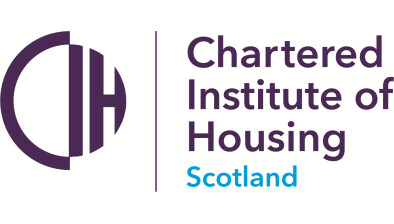Scottish Government ‘gaslighting public’ on progress to end homelessness

Shelter Scotland director Alison Watson
Claims by the Scottish Government that progress is being made towards ending homelessness and building social housing look like an attempt to gaslight the Scottish public, Shelter Scotland told MSPs in Parliament yesterday.
The housing charity made the claim after new figures showed local government lawbreaking relating to duties towards homeless households had rocketed to shocking new levels. The row comes as Scottish Ministers prepare to legislate for further legal duties on councils whilst simultaneously cutting their budget for homelessness services and building new social homes.
The statistics were published on the same day as MSPs prepared to vote on a budget which slashes funding for housing for the second year in a row, a decision the charity has warned will have “devastating” consequences.
According to the homelessness figures, there were 1,575 instances of failure to offer a place to a household requiring temporary accommodation between 1st April and 30th September 2023, also known as gatekeeping, - a 1,400% increase compared to the previous six months.
There were also 2,335 breaches of the Unsuitable Accommodation Order over the same period – a 19% increase compared to the previous six months.
Ahead of yesterday’s vote on the Scottish Budget, Shelter Scotland warned that ministers can no longer be taken seriously when they claim to be committed to tackling homelessness.
The charity has been calling on councils and Scottish Ministers to declare a housing emergency and implement a new emergency plan to reduce the number of people in temporary accommodation. It has also warned that continuing with the existing strategies will only result in more of the same and called for a new national housing emergency plan that prioritises people’s rights and increasing the number of homes for social rent.
Shelter Scotland director, Alison Watson, said: “The Scottish Government’s strategies for housing and homelessness are failing and any attempt to say otherwise is starting to feel like an attempt to gaslight the Scottish public.
“The Scottish Government can’t claim to be determined to fight poverty while presiding over record homelessness, repeatedly deprioritising housing in its spending choices, and ploughing ahead with a strategy which (yesterday’s) figures once again clearly show isn’t working.
“Local authorities are breaking the law on an industrial scale every day and yet there’s no new plans, no new money, and no new leadership to meet the scale of the emergency.
“People in Scotland are being denied their housing rights as a matter of course. Indeed, there’s good reason to believe based on the clients we’ve supported that these figures underestimate the true extent of the problem.
“It’s hard to imagine any other area of the law where the Scottish Government would tolerate such flagrant and frequent law breaking but that’s what is happening when it comes to housing.
“The ongoing housing emergency in Scotland was not inevitable, it is a result of poor political choices and serious mismanagement across every tier of Government. Anyone who backed that budget can’t expect to be taken seriously in the future when they claim they’re fighting homelessness.”
Ashley Campbell, policy and practice manager at CIH Scotland, said: “The latest homelessness figures from the Scottish Government are deeply concerning but they don’t come as a surprise, only confirming what our members have been telling us – that demand for services has been continuing to increase without a corresponding increase in resources. We have a government that has set out world class ambitions to end homelessness in Scotland, yet we are seeing more households and children in temporary accommodation than ever before, and no sign of the urgent action needed to reverse the trend. Instead, we have seen devastating cuts confirmed to the housing supply budget.
“We are concerned to see levels of homelessness resulting from domestic abuse remaining steady at 13 per cent of applications despite efforts from the housing sector to recognise and address the issue. In 2021, Parliament passed legislation to ensure that social landlords could evict perpetrators of domestic abuse from a joint tenancy without making the victim homeless. Three years later victims are still waiting for the Scottish Government to enact this law and give them the ability to stay in their own home.
“Encouragingly, the figures suggest a reduction in the number of households becoming homeless from the private rented sector, and this is something we hope the sector can build on. The PRS is a vital part of the housing sector in Scotland and new research we are preparing to publish in the coming days will set out how the PRS could contribute to reducing homelessness going forward. If we are to end homelessness in Scotland, every part of the housing system needs to be working effectively and providing safe, secure homes.”
A frontline homelessness charity has highlighted how unsuitable temporary housing could be contributing to a rise in couch surfing and rough sleeping and called for a focus on prevention.
Cyrenians, which runs more than 60 frontline services that tackle the causes and consequences of homelessness in Edinburgh, Falkirk, the Lothians and the Borders, has also seen a significant rise in the number of people experiencing homelessness who are not captured in this report.
This number includes people who are sleeping rough and those who are experiencing ‘hidden homelessness’ including people who are couch surfing or those who are facing eviction with nowhere to go.
Whilst these people are not represented by the official statistics, one of the reasons for the reported rise in their numbers is the reliance on temporary accommodation which is increasingly sparsely available and unsuitable for habitation.
The number of temporary accommodation placements that have been in breach of the Unsuitable Accommodation Order has risen by 71% from 2021-22 to 2022-23. Not only that, the numbers of households assessed as requiring temporary accommodation - who are not offered it – have risen by 138% from 2022 to 2023. Those reporting sleeping rough in the previous 3 months, in the 12 months reflected in the data, has risen by 21%.
Susan Affleck, Edinburgh outreach service manager at Cyrenians, manages the Homeless Navigator service, which works with people living on the street in Edinburgh, helping them access housing and address the problems which may have contributed to their situation.
She said: “I’ve not seen this number of rough sleepers for a while. I think the public perception is that – because we managed to get almost everyone inside during the pandemic –there may be much lower numbers of rough sleepers than there once was. But the reality is that it’s now worse than it was before COVID-19. It doesn’t help that the temporary accommodation –is costly for the councils and not fit for purpose. Facilities are not up to scratch and - for those who need lots of additional support for mental health issues, for example – it is not a realistic option.”
Ewan Aitken, CEO at Cyrenians, said to halt Scotland’s homelessness problem, it must be understood as a public health emergency.
He added: “Scotland is facing a fully-fledged homelessness crisis. As a nation we need to get much better at supporting people at key points of transition in their lives, whether that is leaving school, leaving a relationship, leaving hospital or leaving prison when they are at most risk of falling through the cracks.
“We urgently need more housing, but we also need to get much better at prevention. Local authorities have a duty to house people if they are homeless, but in most cases people will have been in contact with other services before they reached that point, so chances are being missed.”
Cllr Maureen Chalmers, COSLA spokesperson for community wellbeing, said: “I am really concerned about the increasing number of people who are homeless and the growth in rough sleeping across Scotland. While councils work hard and in partnership with the Scottish Government and those in the third sector, our ability to offer support and accommodation is becoming overtaken by need.
“More affordable housing is required, if we are to avoid more local authorities joining the three who have already declared local housing emergencies.”
Housing minister Paul McLennan said: “These figures are sobering and demonstrate the challenge we face in tackling homelessness, which has been made worse by UK Government’s Local Housing Allowance Freeze, cuts to the Scottish Government’s budget and the bedroom tax.
“Despite this, Scotland continues to have the strongest rights anywhere in the UK for anyone who becomes homeless, but we are determined to ensure no one need become homeless in the first place and ensure people can stay in their homes.
“I regularly engage with Scotland’s local authorities and work with them find solutions to the housing pressures they are facing. The Scottish Government is doing all it can by making record funding available to councils of more than £14 billion in 2024-25 – a real-terms increase of 4.3% compared with the previous year. This includes £30.5m to local authorities to support their work to prevent homelessness, plus £90.5m to spend on discretionary housing payments. We are also investing £100m in the multi-year ending homelessness together fund.
“The figures show the introduction of emergency legislation to protect tenants during the cost of living crisis has likely reduced the number of private renters from becoming homeless. When the emergency legislation comes to an end from 31 March we have outlined proposals to continue to give tenants stronger rights than anywhere else in the UK.
“As part of our £752m Affordable Housing Supply Programme we are investing at least £60m in 2023-24 to enable local authorities and registered social landlords to identify properties to acquire for use as high quality, affordable, permanent homes. We are working closely with them to maximise delivery by the end of this financial year.”







